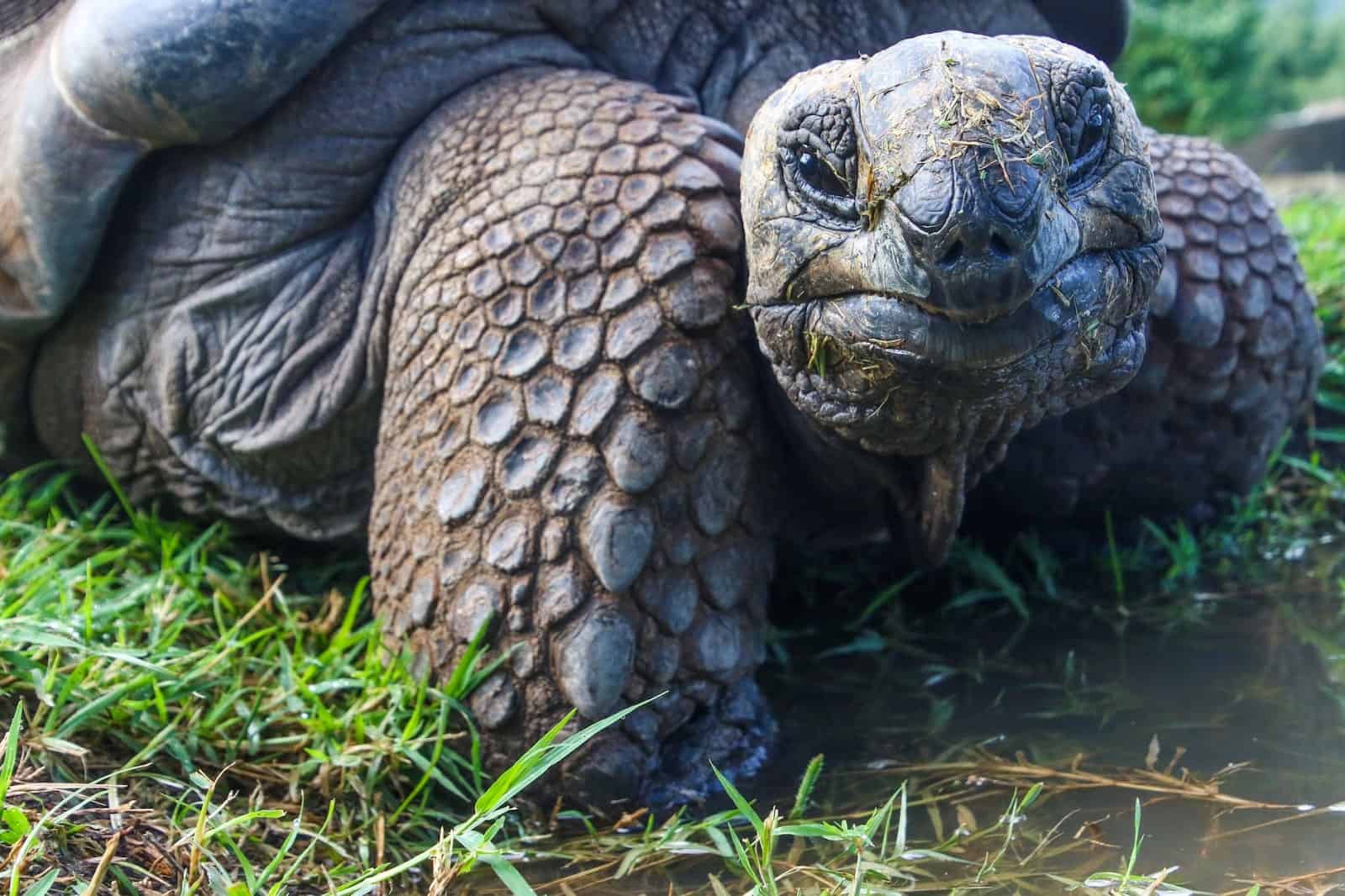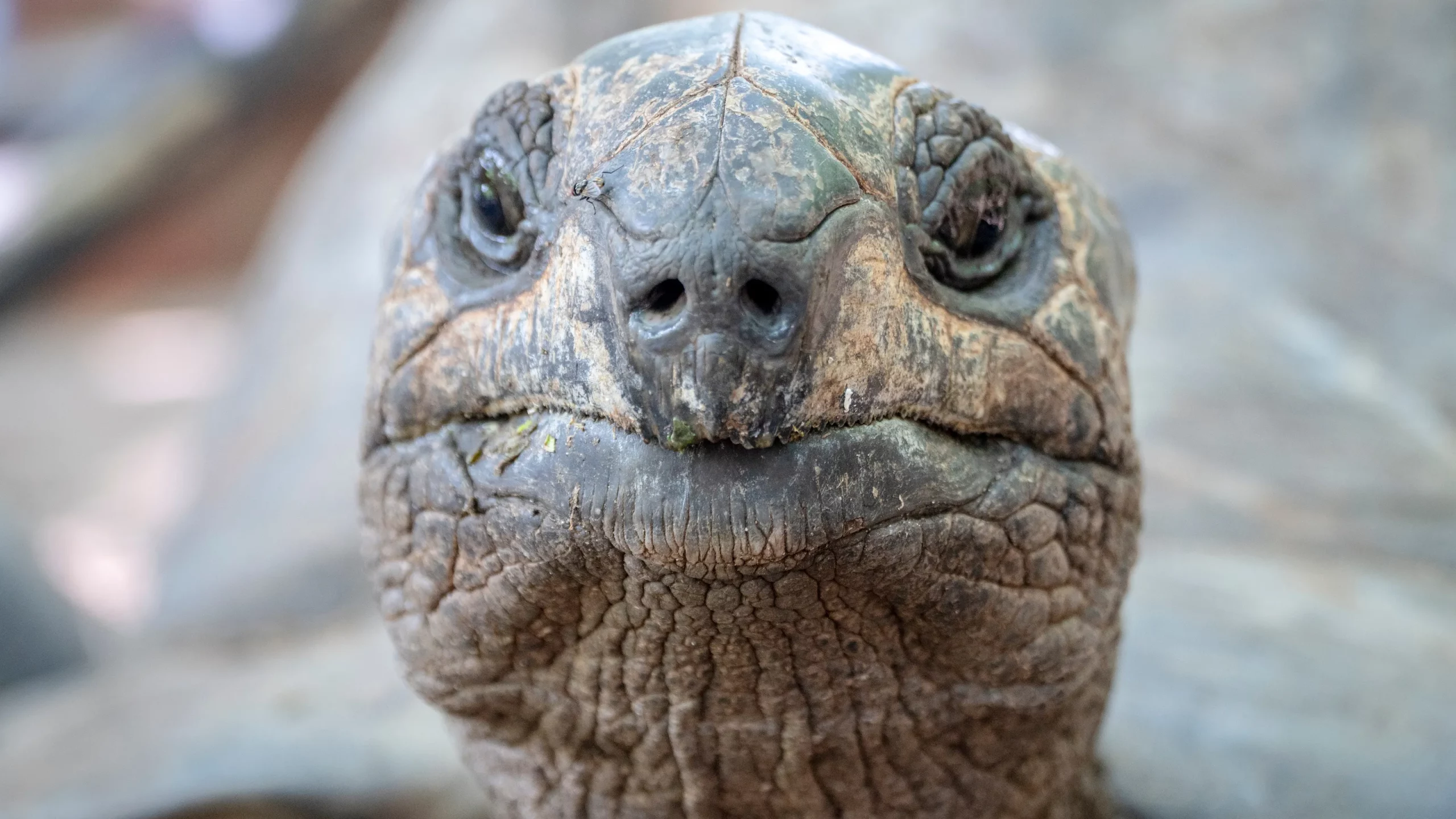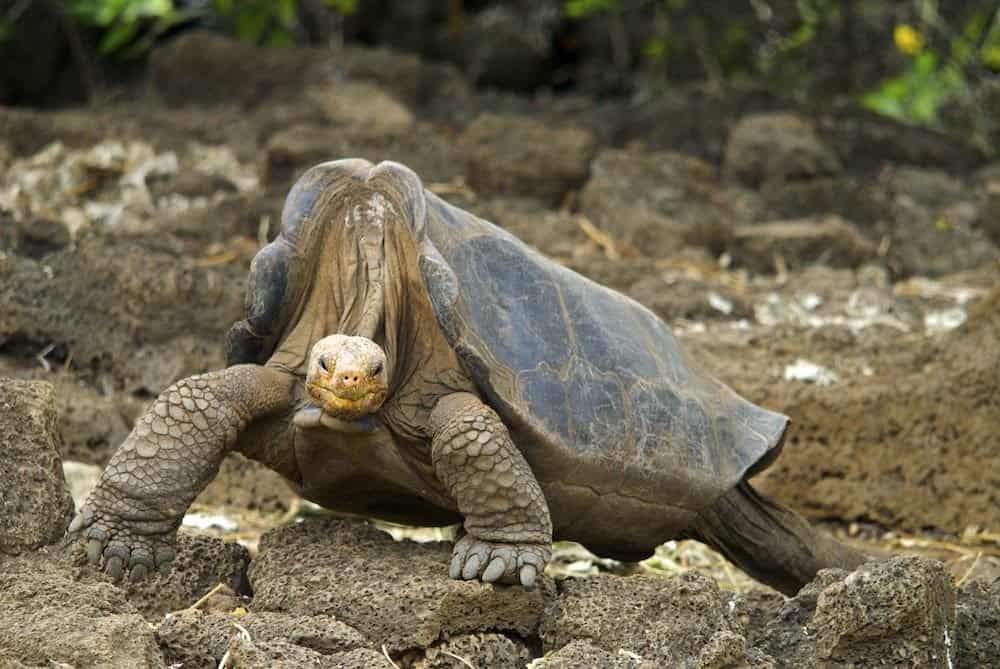Why do tortoises live so long? Tortoises generally live long lives due to their slow metabolism, efficient energy use, and adaptations that help them survive in their environments.
Tortoises, with their long lifespans and unique characteristics, have always fascinated me. These ancient reptiles have been around for millions of years and can live for several decades or even centuries. Have you ever wondered why do tortoises live so long?
Studying tortoise longevity is not only intriguing but also important for understanding the secrets to a long and healthy life.
Key Takeaways
- Tortoises have a fascinating anatomy that helps them live long, including a slow metabolism, thick skin, and a unique respiratory system.
- Diet plays a crucial role in tortoise longevity, with a focus on high-fiber, low-protein foods and plenty of hydration.
- Environmental factors like climate and habitat can greatly impact tortoise lifespan, with some species living longer in certain conditions.
- Genetics also play a role in tortoise longevity, with some species having unique DNA adaptations that help them live longer.
- Exercise, immune system function, reproduction, stress management, and human impact all contribute to tortoise longevity and can provide valuable lessons for our own health and well-being.
The Anatomy of Tortoises: How Their Bodies Help Them Live Long
One of the key factors contributing to tortoise longevity is their slow metabolism and heart rate. Unlike mammals, tortoises have a much slower metabolic rate, which allows them to conserve energy and live longer. Their hearts beat at a leisurely pace, ensuring that they don’t exert themselves too much.
Another remarkable feature of tortoises is their thick shell, which acts as a protective armor against predators and harsh environmental conditions. This shell provides excellent insulation and shields them from extreme temperatures.
Tortoises also possess the ability to store water and food in their bodies for extended periods. This adaptation allows them to survive in arid environments where water sources may be scarce.
The Role of Diet in Tortoise Longevity: What They Eat and Why It Matters
Tortoises are herbivores, primarily feeding on various plant materials such as grasses, leaves, flowers, fruits, and cacti. Their diet consists mainly of high-fiber foods with low protein content.
The high fiber intake helps maintain proper digestion by promoting gut motility while preventing constipation or impaction issues commonly seen in other animals with different dietary requirements.
Calcium plays a crucial role in maintaining healthy bones and shells for tortoises. They require an adequate amount of calcium along with vitamin D to ensure proper absorption from their diet or sunlight exposure.
Environmental Factors: How Climate and Habitat Affect Tortoise Lifespan
| Environmental Factors | Impact on Tortoise Lifespan |
|---|---|
| Temperature | High temperatures can cause dehydration and heat stroke, while low temperatures can lead to hibernation and reduced metabolism. |
| Humidity | Tortoises require a certain level of humidity to maintain healthy skin and respiratory function. Too much or too little humidity can lead to health problems. |
| Diet | A balanced diet is essential for tortoise health and longevity. A diet lacking in essential nutrients can lead to health problems and a shortened lifespan. |
| Habitat | The type of habitat a tortoise lives in can greatly impact its lifespan. A natural habitat with access to sunlight, shade, and a variety of vegetation is ideal. |
| Predators | Tortoises are vulnerable to predators such as dogs, cats, and birds of prey. Protecting tortoises from predators can help increase their lifespan. |
Tortoises have evolved to adapt to a wide range of environments, from deserts to grasslands and forests. Their ability to withstand harsh conditions is essential for their longevity.
Temperature and humidity are critical factors that influence tortoise lifespan. Extreme temperatures can be detrimental, causing dehydration or overheating. Tortoises have developed behavioral adaptations such as burrowing or seeking shade to regulate their body temperature.
Unfortunately, habitat destruction and fragmentation pose significant threats to tortoises’ survival. Human activities like urbanization, deforestation, and agriculture encroach upon their natural habitats. Conservation efforts are crucial in preserving these unique creatures and ensuring their long-term survival.
The Genetics of Longevity: What We Know About Tortoise DNA
Genetic factors also play a role in tortoise longevity. Some species exhibit specific genetic traits that contribute to their extended lifespans.
Comparative studies with other long-lived species like whales or elephants provide insights into the genetic mechanisms underlying longevity in different organisms.
Understanding the genetics of tortoises could potentially lead to breakthroughs in genetic research for human health and aging-related diseases.
The lifespan of tortoises can vary significantly depending on the species. Here is a list of some common tortoise species along with their average lifespans:
| Species | Average Lifespan |
|---|---|
| Galapagos Tortoise | 100-150 years |
| Aldabra Giant Tortoise | 80-120 years |
| African Spurred Tortoise | 50-150 years |
| Russian Tortoise | 40-60 years |
| Greek Tortoise | 50-100 years |
| Sulcata Tortoise | 70-100 years |
| Red-footed Tortoise | 50-60 years |
| Leopard Tortoise | 80-100 years |
| Gopher Tortoise | 40-60 years |
| Indian Star Tortoise | 30-80 years |
The Importance of Exercise: How Tortoises Stay Active and Healthy
While it may seem counterintuitive due to their slow movement, exercise is vital for tortoises’ overall health and longevity.
Tortoises engage in slow but steady movements throughout the day, which helps maintain muscle tone and bone density. Regular exercise ensures proper circulation, digestion, and overall well-being.
Observing these gentle creatures reminds me of the importance of incorporating regular physical activity into my own life for optimal health benefits.
Immune System Function: How Tortoises Fight Off Disease and Infection
Tortoises possess unique immune system adaptations that allow them to resist certain diseases and infections effectively.
Their immune systems produce antimicrobial peptides that help combat pathogens naturally without relying solely on antibodies like mammals do.
Maintaining a healthy immune system is crucial for tortoises’ longevity, just as it is for humans. Adequate nutrition, stress management, and a clean environment are essential factors in supporting their immune function.
Reproduction and Longevity: How Tortoise Reproduction Affects Lifespan
Tortoises have a delayed sexual maturity compared to other animals. This delayed reproduction allows them to invest more energy in growth and survival rather than early reproduction.
Additionally, tortoises have relatively low reproductive rates, with females laying only a few eggs per year. This conservative approach to reproduction contributes to their extended lifespans.
The Role of Stress: How Tortoises Manage Stress and Maintain Health
Tortoises have developed coping mechanisms to deal with stressors in their environment. They retreat into their shells when threatened or overwhelmed, providing them with a sense of security.
Chronic stress can negatively impact health and longevity in both humans and tortoises alike. It’s important for us all to find healthy ways to manage stress levels for optimal well-being.
Human Impact: How Human Activity Affects Tortoise Longevity
Human activities pose significant threats to tortoise populations worldwide. Habitat destruction due to urbanization, deforestation, and agriculture leads to the loss of critical habitats necessary for their survival.
Overexploitation of tortoises for food or the pet trade further exacerbates the decline of these remarkable creatures’ populations.
Conservation efforts are vital in protecting these ancient reptiles from extinction while promoting responsible pet ownership practices that do not harm wild populations.
What We Can Learn from Tortoise Longevity and How to Apply it to Our Own Lives
Studying tortoise longevity provides valuable lessons on healthy living that we can apply in our own lives:
1) Slow down: Emulating the slow pace of tortoises reminds us not always rush through life but instead take time for self-care and relaxation.
2) Protect our environment: Conservation efforts are crucial for preserving the habitats of tortoises and other endangered species. By being environmentally conscious, we can contribute to a healthier planet for all living beings.
3) Responsible pet ownership: If considering a pet, it’s essential to research the specific needs of the animal and ensure that it is obtained legally and ethically.
In conclusion, tortoises offer us a glimpse into the secrets of longevity. Their unique anatomy, diet, genetics, exercise habits, immune system function, reproductive strategies, stress management techniques all contribute to their remarkable lifespans. By studying these ancient reptiles and taking steps towards conservation efforts and responsible pet ownership practices, we can learn valuable lessons on healthy living while ensuring the survival of these incredible creatures for future generations.
FAQs
What is the average lifespan of a tortoise?
The average lifespan of a tortoise varies depending on the species, but many can live for over 100 years.
What factors contribute to tortoise longevity?
Tortoise longevity is influenced by a variety of factors, including genetics, diet, habitat, and environmental conditions.
How do tortoises slow down the aging process?
Tortoises have a slower metabolism than many other animals, which helps to slow down the aging process. They also have a unique ability to repair damaged DNA, which can help to prevent age-related diseases.
What do tortoises eat?
Tortoises are herbivores and primarily eat a diet of grasses, leaves, and other vegetation.
What is the role of antioxidants in tortoise longevity?
Antioxidants play a key role in tortoise longevity by helping to protect cells from damage caused by free radicals. This can help to prevent age-related diseases and slow down the aging process.
How do tortoises protect themselves from predators?
Tortoises have a hard shell that provides protection from predators. They also have the ability to retract their head and limbs into their shell, making it difficult for predators to attack them.
What are some common tortoise species known for their longevity?
Some common tortoise species known for their longevity include the Galapagos tortoise, the Aldabra tortoise, and the African spurred tortoise.
How long do African Spurred tortoises live?
African spurred tortoises, also known as sulcata tortoises, have a long lifespan. In captivity, they can live for several decades, often exceeding 50 years with proper care. Some individuals have been known to live even longer, sometimes reaching up to 70 years or more.



